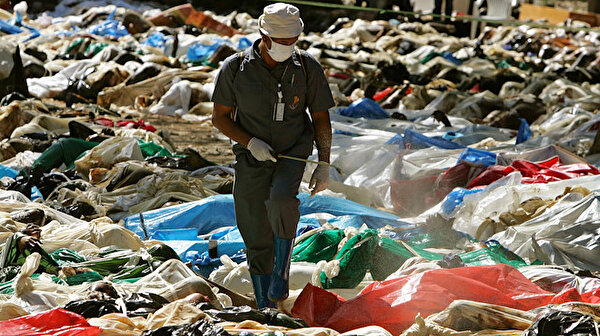Survivors of a massive tsunami which hit parts of the Asia-Pacific region recalled the nightmare of the 2004 Indian Ocean earthquake and tsunami. It w

Survivors of a massive tsunami which hit parts of the Asia-Pacific region recalled the nightmare of the 2004 Indian Ocean earthquake and tsunami.
It was this day 15 years ago that Indian Ocean witnessed an intense 9.1-magnitude earthquake under the sea in northern Indonesia causing a tsunami with 17-meter high waves. The epicenter was found to be near the west coast of Sumatra.
The strength of the earthquake is thought to have had the energy of 23,000 Hiroshima-type atomic bombs.
Soon after the earthquake, the killer waves hit at least 11 countries, affecting people from east Africa to Thailand. An estimated 230,000 people — 170,000 of them in Indonesia — died, and nearly 2 million people were displaced.
The affected countries hold a two-minute silence to commemorate one of the worst incidents which killed thousands and destroyed properties worth billions.
In Sri Lanka, where nearly 35,000 natives were killed, a two-minute silence was observed at 9.25 a.m. local time (0325GMT).
It was around 8 a.m. local time (0230GMT) on Dec. 26, 2004 that the earthquake unleashed 30 meters (98.4 feet) tall waves of water.
The island nation of the Maldives lost around 62% of its gross domestic product.
To mitigate the losses, Loretta Hieber Girardet, the UN’s Asia-Pacific chief for disaster risk reduction, wrote in daily Jakarta Post that early warning systems for weather-related disasters such as typhoons have expanded which have helped to account for an overall drop in disaster-related deaths throughout the region.
In 2005, 25 countries established a joint “Indian Ocean Tsunami Early Warning and Mitigation System” to detect tsunamis and issue timely alerts.
“These investments in disaster risk reduction are yielding clear results,” he said crediting India and Bangladesh for safely evacuating over 1 million people ahead of Cyclone Fani in May early this year.